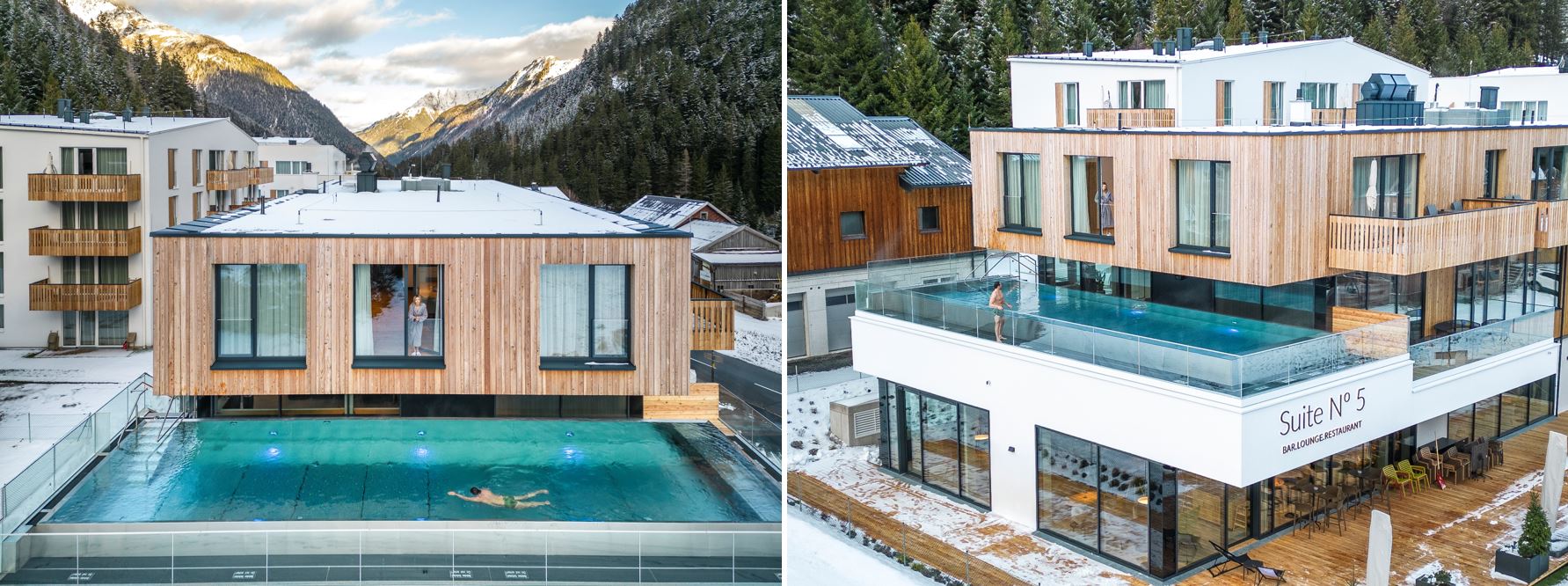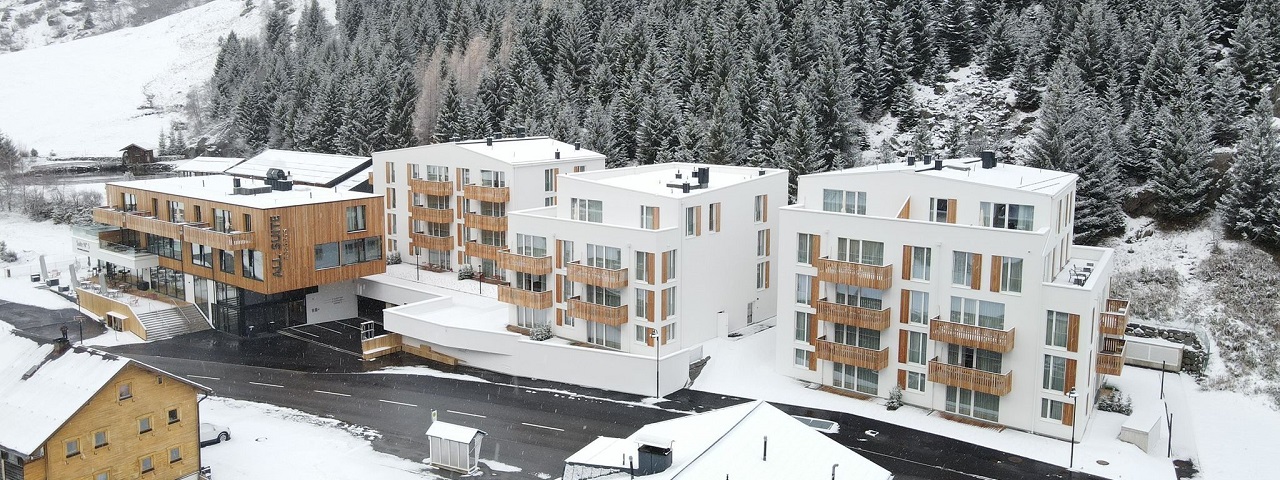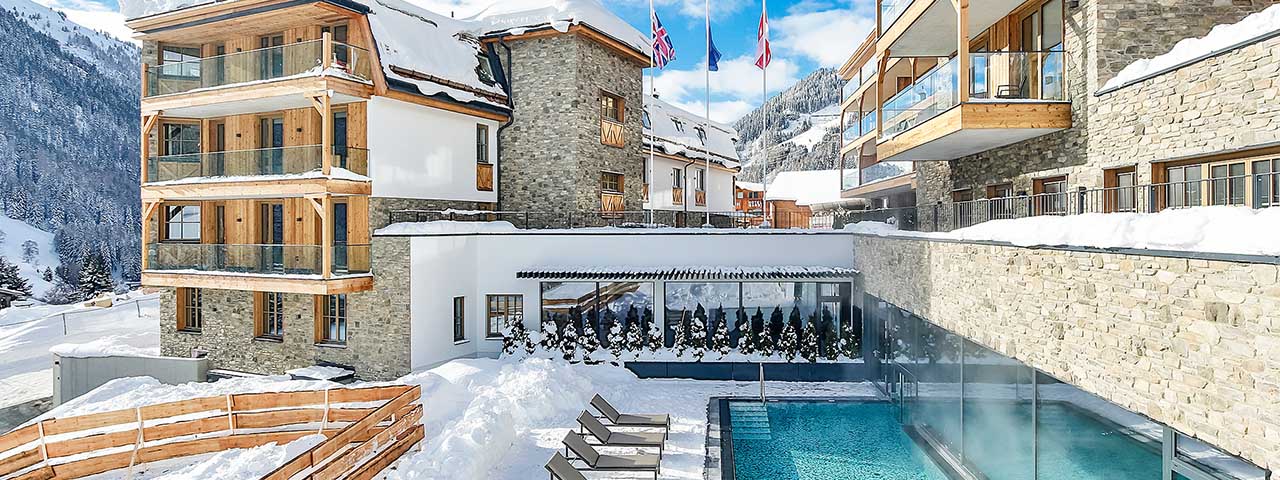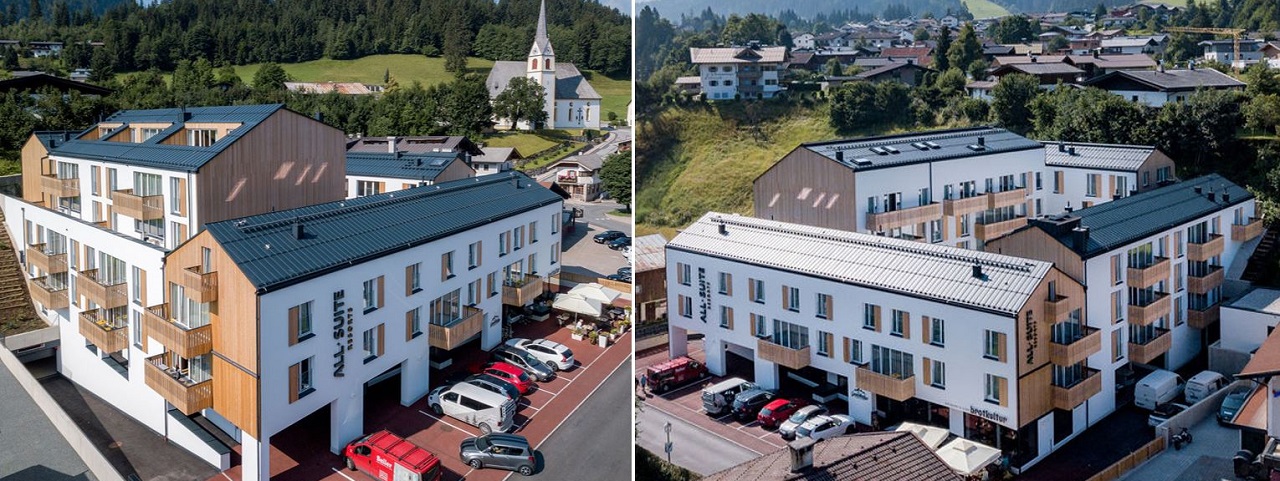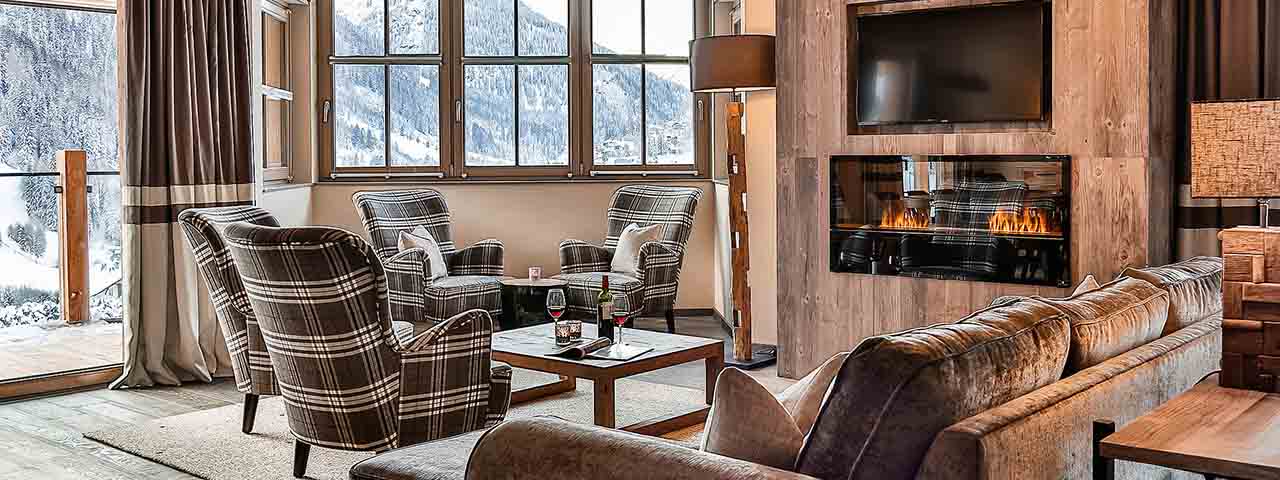ZONING AND OWNERSHIP
What is a “tourist residence” and what restrictions can an owner expect?
When purchasing a property constructed on land zoned for touristic use you are obliged to rent the property within the framework of a tourism enterprise. As a result, you can claim the 20% VAT added to the net purchase price as input tax. The enterprise will be managed by an appointed Rental Operator.
Why do the local authorities zone properties in this way?
The local government invests in infrastructure in the resort such as leisure centres, waste-water treatment plants, snow clearing and mountain rescue, which is financed by usage. Therefore, it is important that owners do not leave their properties empty when not using it.
Does this mean I can’t use my own property?
No. For purposes of attaining optimum usage you are permitted to book holidays in your apartment as you wish and according to the operating agreement.
Am I investing in a hotel?
No. Your freehold, condominium ownership is registered in the Land Registry: you are not purchasing shares in a hotel. Furthermore, you will own a share of the land and common areas of the property, such as technical rooms, ski and boot-room, lifts and corridors.
PURCHASE PROCESS – RESERVATIONS, PAYMENTS, COSTS AND HANDOVER.
I am keen on a particular apartment but worried another buyer could reserve it before I’ve had chance to go through all my queries. What should I do?
To allow a prospective buyer time to go through all the important questions arising from the review of the agreements, we can reserve a unit for a period of one week with no obligation.
I’ve decided to move forward – how do I proceed?
The first stage is to sign a Purchase Offer (Kaufanbot) which is sent to you by email for signature. A 5% deposit of the net purchase price paid to an escrow account is due upon signing as an ‘Earnest Money Payment’ and this may be refunded if special requirements are not met e.g. a financing offer under market orientated conditions is not possible in Austria.
From whom am I purchasing the apartment? Kristall Spaces?
No, your Sale and Purchase Agreement is with the development company which owns the land.
Can I buy the property through a company?
Yes. Many purchasers use a so-called Special Purpose Vehicle (SPV). The only requirement is that the SPV acquiring the property has a registered office inside the EU. Contrary to popular belief, it is not necessary for the director or shareholder to be a European citizen.
What if I want to sell?
There are no restrictions on resale – you can sell your property at any time and we would be delighted to assist.
What happens if the Developer selling the apartments has financial problems part way through the development?
Buying property off-plan in Austria is extremely secure. New-build apartments are paid for in stages and all payments are made to a Trustee and held in an Escrow account. Stage payments are not released to the developer before an independent, court-appointed surveyor has inspected each construction stage and signed off the building progress for the Trustee. Construction begins only after the financing bank has released funds for the development and the development is fully funded to completion. Furthermore, the development is ‘ring-fenced’ and completely independent of any other commercial activities.
What is the schedule for the stage payments?
- 15% at start of building works (including the ‘Earnest Payment’ of 5%) due within 14 days of both parties having signed the Sale and Purchase Agreement
- 35% on completion of the building shell and roof
- 20% on completion of plumbing and electrical installations
- 12% on completion of the facade & windows
- 12% on completion of the property
- 4% on hand over of keys
- 2% after the developer provides a bank guarantee to the Trustee to cover any unforeseen defects.
Who drafts the contracts and handles the legal aspects of the purchase – what are the legal fees?
A Trustee lawyer acts on behalf of both parties, the purchaser and the vendor. Occasionally, the purchaser appoints his or her own solicitor for a second opinion – this is not necessary but may provide peace of mind. In this case, the purchaser’s solicitor will liaise directly with the Trustee. The legal fees are normally 3% of the gross purchase price.
Why are the legal fees higher than a normal property purchase?
The Trustee lawyer has more responsibility and employs more resources over a longer period for an ‘off-plan’ purchase compared to a typical resale transaction. The trustee lawyer represents you and all the other owners during the planning and build phase and for 3 years afterwards (he holds back 2% of the purchase price in Escrow to cover any unforeseen defects). The role of the Trustee is to draft the Sale and Purchase Agreement, Rental Agreement, Contract of Administration, etc. in German and English and prepare all documents required to transfer legal ownership to the Purchaser. The Trustee is obligated to offer impartial legal advice, collect stage payments and release funds to the Seller in accordance with the contract. The Trustee acts for the Purchaser and the Seller during construction, engages an independent, court-appointed, sworn witness to confirm building progress and concludes all aspects of the conveyance.
When and where do I sign the Sale and Purchase Agreement?
The Sale and Purchase Agreement (SPA) and all documents required to transfer legal ownership are drafted in German and English and signed by the Purchaser and Seller in the presence of a Notary Public. The Purchaser will receive a copy of the SPA by post and is required to sign before a Notary Public (not a solicitor) in their country of residence. Once the Purchaser’s signature is witnessed, the Notary Public sends the document to the Foreign Office to be apostilled (with the exception of Germany). Most buyers choose to sign at the Austrian embassy in their home country as they can also provide the apostille, thus speeding up the process.
What are the average purchase costs?
Purchase costs for buying a property in Austria are calculated on the gross purchase price. The purchaser pays the Trustee fees after the SPA has been signed. Fees are calculated as follows:
- Purchase Tax (Stamp Duty) is 3.5% of the gross purchase price and the contract establishment costs
- Registration in the Land Registry is 1.1% of the gross purchase price
- Trustee legal fees – 3% of the gross purchase price + VAT (VAT is refunded)
- Notary costs to certify the contract signatures
- Court costs, administration & fiduciary fees approx 750 Euros
- In some projects, Kristall Spaces or AlpenResl might charge you some buyer’s fees
Do you arrange finance?
Yes, once a Purchase Offer has been signed “subject to finance”. Austrian banks will fund up to 50% of the purchase price with a loan period between 15 and 25 years. Some banks may charge set-up fees and/or an appraisal fee of 0.5% in addition to a notary a fee of 1.5% for the amount of the mortgage to be registered in land registry.
Austrian mortgage agreements generally need to be signed at the bank in Austria. Some buyers, therefore, time this to coincide with signing of the Sale and Purchase Agreement.
Why do you not provide a fixed date for completion and handover?
We are obliged to make every effort to complete construction and hand over your apartment on time. However, we are building in a high-alpine environment at the mercy of the weather with a short construction window of May to November. Also, we are governed by the local laws, which often restrict construction during the tourism seasons. We offer an estimated date for completion in the contract but no guarantees can be made.
Parking
Each apartment must be purchased with a minimum of one parking space.
Will WiFi & Sat connections be provided to all parts of the development?
Internet WiFi is available in your apartment. Sat TV is also available in each living room.
Will there be any separate storage space for owner’s belongings such as ski equipment and clothing?
Yes, a minimum 2m² of storage per apartment is provided and included in the purchase price. Owners must provide their own personal padlock.
HANDOVER, SNAGGING AND BUILDING GUARANTEES
How do you hand over the apartment?
You will be contacted two weeks in advance with a date for the official handover of the apartments. If you cannot be there in person, the Trustee Lawyer and independent, court appointed surveyor will represent you.
What about snagging?
The developer provides an abstract bank guarantee with a value of 2% of the purchase price to cover unforeseen snagging defects. A report will be produced documenting any snagging issues at the time of handover. Any issues raised must be fixed within six weeks if the apartment is vacant.
Is the apartment delivered to the owner turnkey?
At the time of handover, the apartment will be fully fitted with all contents and appliances included in the inventory and the design scheme chosen by the owner.
A full furniture pack including cutlery and crockery is included in the purchase price. Everything required for rental is supplied with the apartment and is detailed in the Building and Furnishings specifications sheet you will receive prior to purchasing.
A choice of three high-quality design schemes for the apartments have been created and owners are invited to choose their preferred interiors.
Are there any building guarantees?
Yes, we negotiate bank guarantees with tradesmen for the following:
- 10 years for the roof covering
- 5 years for the mechanical systems (heating, electrics, lifts)
- 3.5 years for the remaining works including the shell of the building
- 2 years for electrical goods
Furthermore, Austrian Building Law allows for a 30-year Statute of Limitations for all hidden defects.
POST HANDOVER – CONDOMINIUM FEES (WEG), RENTAL INCOME AND PERSONAL USAGE
What is the Facility Management Company’s role and who appoints them?
The Facility Management Company is appointed to represent the Condominium Owners Association before handover of the apartments. The Facility Management Company will read the meters for water, electricity and heating and appoint the caretaker, utility and maintenance providers and ensure the building has full insurance coverage.
How much are the WEG costs and what do they include?
WEG fees are your condominium fees. The total operating costs of the building are divided proportionately between the Condominium Owners Association (WEG) according to the size of each owner’s property. These are payable monthly in advance.
Your share of communal service charges is determined by a court-appointed assessor based on the title document for each individual apartment, which is detailed in the Sale and Purchase Agreement.
The heating, water and electricity costs of running your individual apartment are an estimated fee between EUR 5.00 and 16.00 per m² of the apartment per month, depending on the level of infrastructure in the general areas. Included in the fees are the following services:
- Heating
- Wastewater
- Electricity and lighting in the general areas
- Refuse disposal
- Building insurance
- Caretaker services
- Snow removal
- Cleaning of common areas
- Chimney sweep
- Heating maintenance contract
- Lift maintenance contract
- Maintenance of common areas
- Internet
- Cable TV
- Auditing costs
- A sinking fund for future maintenance
At the end of the year if you have overpaid, you will be refunded and if you have underpaid you will be invoiced for the balance.
What is the role of the operator? How will the apartments be rented?
The operator consisting of a professional team of employees with experience in the hotel industry as well as sales and marketing has been appointed for the rental and management of the apartments.
The operator endeavours to generate a maximum occupancy at the highest possible rates. Owners are allocated their share of the income quarterly according to the owner’s share of the rental pool. The share of rental pool is calculated as a fraction of the purchase price of the apartment in relation to the purchase price of all apartments.
Not included in the rental pool is the income from additional services and the owner’s booking. The operating costs are divided proportionally according to the owners share of the rental pool.
The role of the rental operator is to market the apartments, maintain a booking system, handle guest deposits, organise check in/check out, keys, cleaning and fresh linen, oversee quality control within the apartments and the payment of tourist tax to the authorities. They also publish the rental income and distribute it to the owners.
The accounts are audited annually for complete transparency.
Rental Pool – What kind of rental income can I expect?
You will receive your percentage of the rental pool income whether your apartment is rented or not. You are only excluded from the pooled income when you occupy the apartment yourself.
Can guests sleep on the sofa?
Yes, the sofa in the living room can be booked as a bed for two additional adults.
However, it should be noted that with 1-bedroom apartments only the owner (after consultation with the operator) and not paying guests can occupy the apartment with two additional guests.
How are booking cancellations by the owner handled?
The same reservation and cancellation conditions apply to guests and owners. This can be seen both on the reservation confirmation and on the website of the respective resort.
The operator is trying to maximise efficiencies and returns and so owners understand the importance of complying with the booking and cancellation rules.
Who will do my accounting?
We have negotiated a very reasonable tax package with an Austrian accountancy firm specialising in tourism residences. You can engage the tax advisors at the time of purchase. They will register you for VAT in Austria, advise you on tax issues during the purchase process and handle your VAT and Tax returns in the future.
How does the local tax system work?
The local authority charges tax on the land of the building, a proportion of which will be paid directly by you, as a part-owner of the freehold. The Land tax is a nominal sum and the council will issue you an invoice annually.

